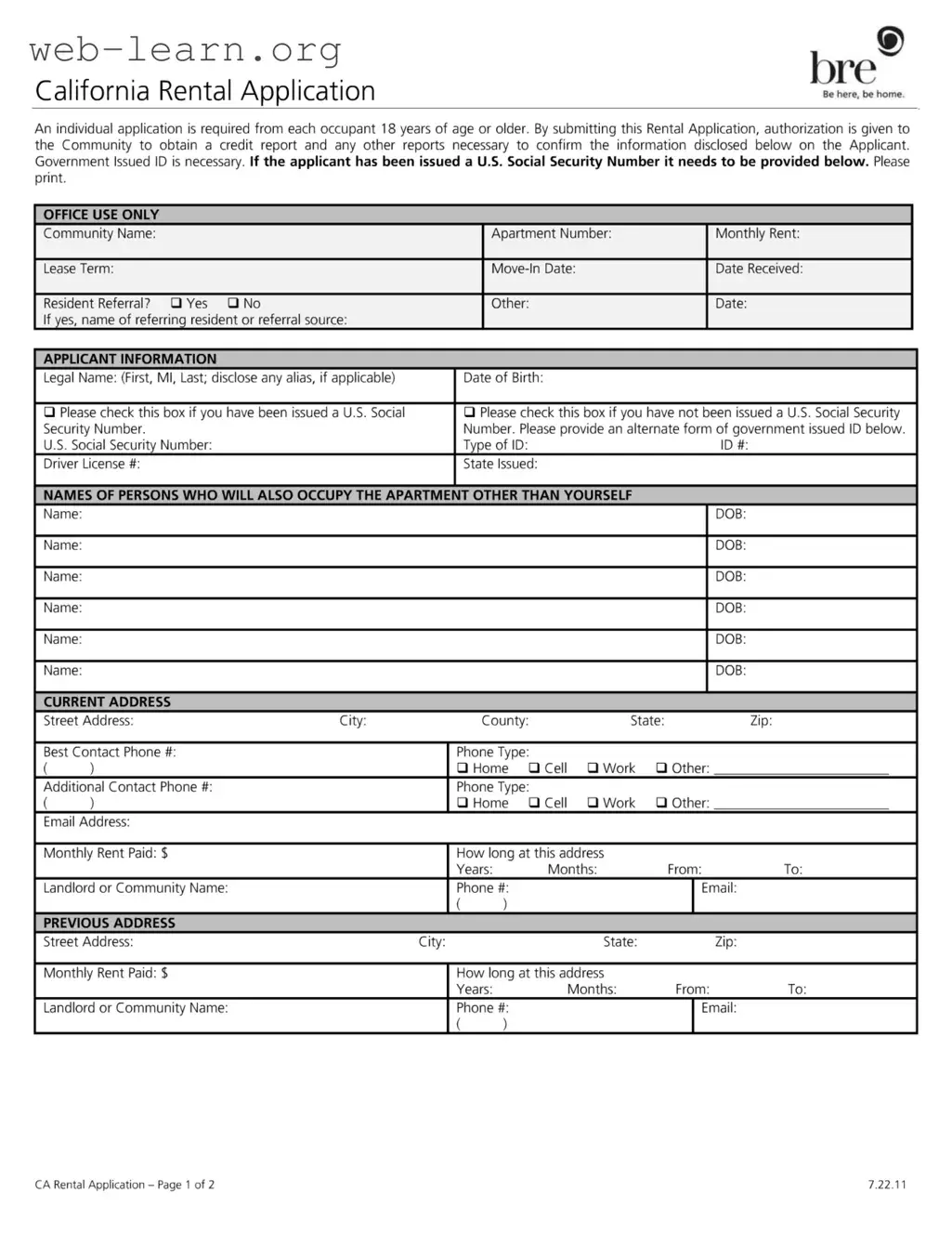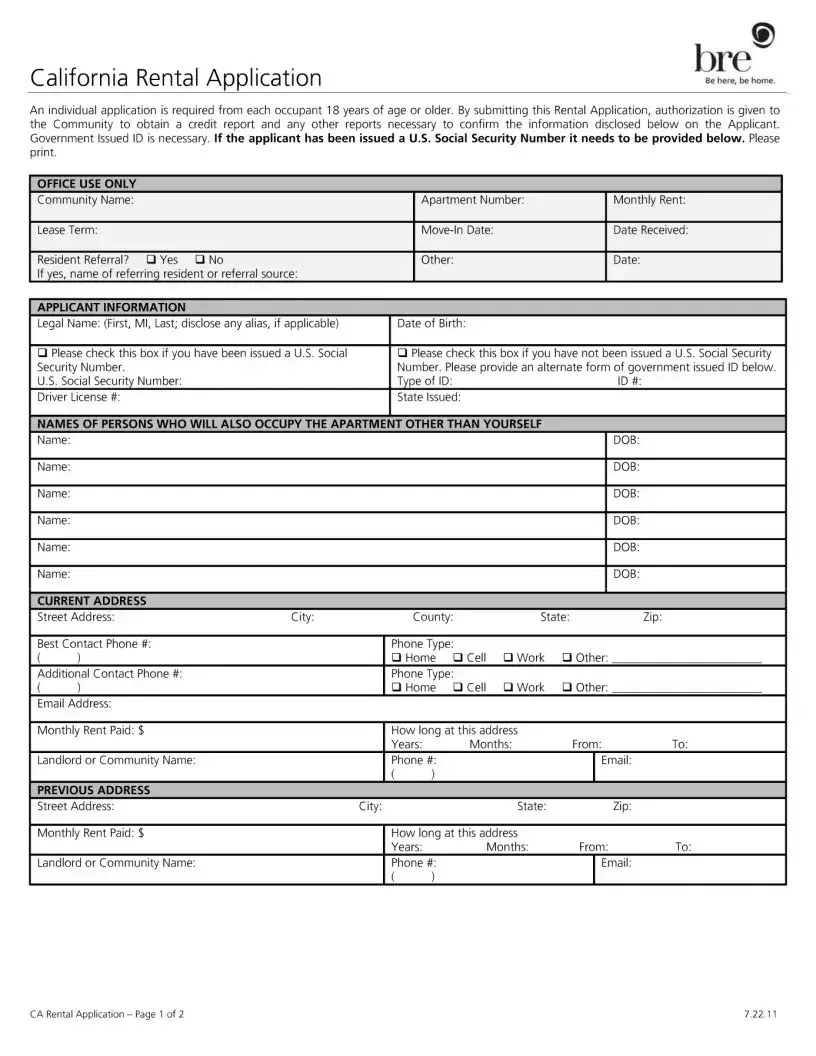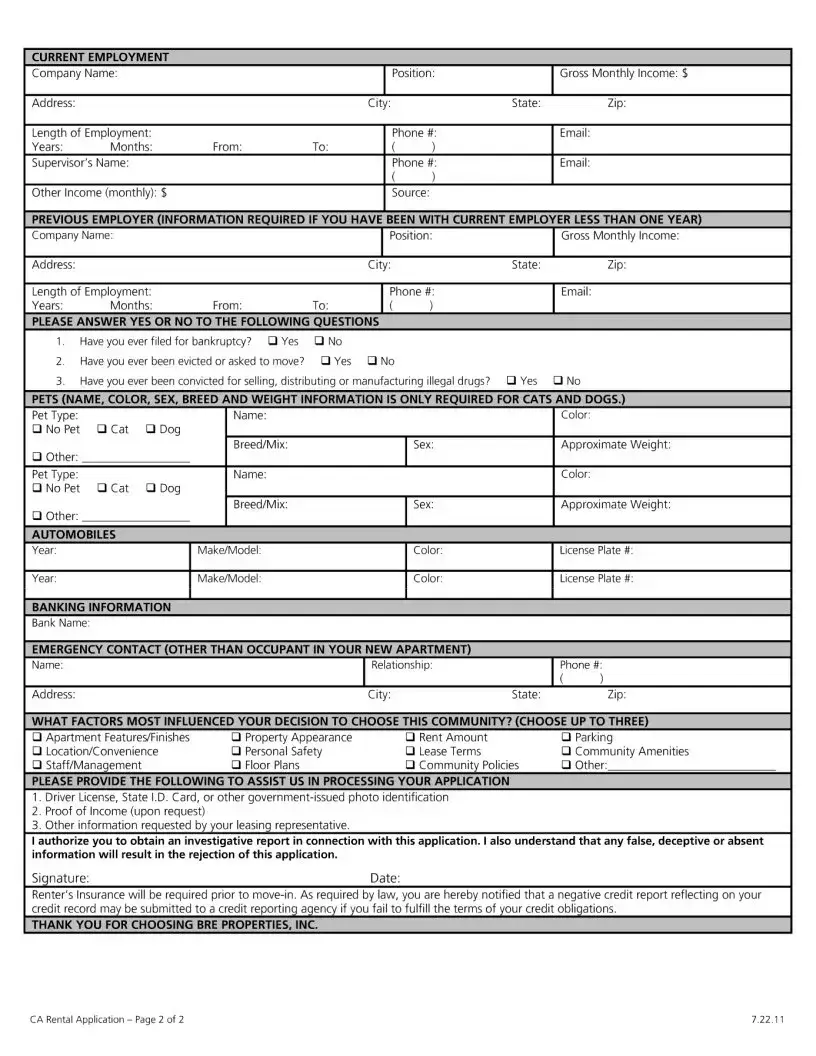When filling out the California Rental Application form, applicants often make several common mistakes that can hinder their chances of securing a rental. One frequent error is failing to provide a complete legal name. The application requires the full legal name, including any aliases. Omitting this information can lead to confusion during the background check process.
Another mistake is not including a Social Security Number or an alternate form of government-issued ID. If an applicant has been issued a Social Security Number, they must provide it. If they have not, they need to supply another form of ID. Missing this information can delay the application or result in rejection.
Many applicants also neglect to disclose all occupants who will live in the apartment. The application specifically asks for the names and dates of birth of all individuals over 18 years old. Failure to include this information may raise red flags for landlords, who need to know exactly who will be residing in the unit.
Providing inaccurate or incomplete employment information is another common pitfall. Applicants should list their current employer, position, and gross monthly income. If they have been with their current employer for less than a year, they must also include details about their previous employer. Inaccuracies can lead to mistrust from the landlord.
Additionally, applicants often overlook the importance of providing accurate contact information. This includes not only phone numbers but also email addresses. If landlords cannot reach applicants for follow-up questions or clarifications, it could jeopardize the application.
Finally, some applicants do not take the time to carefully read the entire application. Important sections, such as the questions about bankruptcy, eviction history, and criminal convictions, require honest answers. Misleading or false information can result in immediate disqualification. Being thorough and honest is essential for a successful application process.


